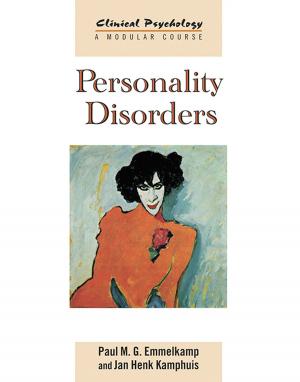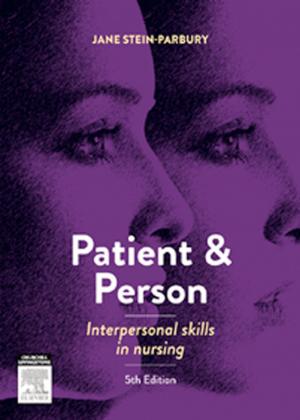The Swordsman's Quick Guide Compilation volume 1
The Seven Principles of Mastery, Choosing a Sword, Preparing for Freeplay, Ethics
Nonfiction, Sports, Martial Arts & Self Defence, Health & Well Being, Fitness, Exercise, Health| Author: | Guy Windsor | ISBN: | 1230000681186 |
| Publisher: | School of European Swordsmanship | Publication: | September 24, 2015 |
| Imprint: | Language: | English |
| Author: | Guy Windsor |
| ISBN: | 1230000681186 |
| Publisher: | School of European Swordsmanship |
| Publication: | September 24, 2015 |
| Imprint: | |
| Language: | English |
Save over 35% on the first four instalments of The Swordsman's Quick Guide!
The Seven Principles of Mastery will teach you the fundamental best practices for mastering any skill; Choosing a Sword will tell you what to look for when choosing your first, second, tenth or hundredth sword; Preparing for Freeplay will teach you how to get from basic drills to being a good fencer; and Ethics provides you with the mental tools to become a better person.
The Seven Principles of Mastery
Guy Windsor has been training swordsmen and swordswomen for a very long time. This short book distills his principles of training swordsmanship into seven key ideas, divided into three internal principles, and four external principles. They are:
Internal:
- Mindfulness
- Flow
- Adopt Useful Beliefs
External:
4) No Injuries
5) The Pareto Principle
6) Run a Diagnostic
7) Distinguish between knowledge and skill
This essential short guide describes each principle, and gives exercises for developing your ability to apply each of them.
Follow these for maximum effectiveness in your art, work, and life.
Choosing a Sword
This book is for beginners who want to practise swordsmanship, and need to know what kind of sword to buy. It covers what to look for in safe training weapons, as well as the ideal range of length, weight and other specifications for each major European sword type, including: Falchion, Arming Sword, Longsword, Sidesword, Rapier, Backsword, Smallsword and Sabre.
It also covers choosing a supplier.
Preparing for Freeplay
For many swordsmen and swordswomen, expert freeplay (also called sparring or fencing) is the pinnacle of the art; both desirable and hard to attain. In this book he describes the step-by-step process he uses to take students from absolute beginner to expert fencer.
This is system can be applied to any style of fencing, because it is not about the specifics of technique. It is about the process of developing skill. It includes instruction on:
- Overcoming personal challenges, such as fear of injury, or fear of embarrasment
- Overcoming practical challenges, like developing fencing memory
- Building the bridge between set drill and competitive freeplay, through gradually increasing the complexity of the drill.
- Setting up different freeplay contexts to develop key skills.
Ethics
This book raises and answers the following questions:
- When is it ok to stab someone in the face with a sword?
- What is the one thing you find most useful about swordsmanship training outside the salle?
- How important is history to you in your practise of swordsmanship?
- Can a duel settle a matter of honour?
- Can violence be beautiful?
- To what extent is the practice of swordsmanship the cultivation of virtue?
- Is the study of ethics necessary for martial artists?
The answers come from the author and his students worldwide; the important thing is to engage with the questions, not to have the "correct" answer.
Save over 35% on the first four instalments of The Swordsman's Quick Guide!
The Seven Principles of Mastery will teach you the fundamental best practices for mastering any skill; Choosing a Sword will tell you what to look for when choosing your first, second, tenth or hundredth sword; Preparing for Freeplay will teach you how to get from basic drills to being a good fencer; and Ethics provides you with the mental tools to become a better person.
The Seven Principles of Mastery
Guy Windsor has been training swordsmen and swordswomen for a very long time. This short book distills his principles of training swordsmanship into seven key ideas, divided into three internal principles, and four external principles. They are:
Internal:
- Mindfulness
- Flow
- Adopt Useful Beliefs
External:
4) No Injuries
5) The Pareto Principle
6) Run a Diagnostic
7) Distinguish between knowledge and skill
This essential short guide describes each principle, and gives exercises for developing your ability to apply each of them.
Follow these for maximum effectiveness in your art, work, and life.
Choosing a Sword
This book is for beginners who want to practise swordsmanship, and need to know what kind of sword to buy. It covers what to look for in safe training weapons, as well as the ideal range of length, weight and other specifications for each major European sword type, including: Falchion, Arming Sword, Longsword, Sidesword, Rapier, Backsword, Smallsword and Sabre.
It also covers choosing a supplier.
Preparing for Freeplay
For many swordsmen and swordswomen, expert freeplay (also called sparring or fencing) is the pinnacle of the art; both desirable and hard to attain. In this book he describes the step-by-step process he uses to take students from absolute beginner to expert fencer.
This is system can be applied to any style of fencing, because it is not about the specifics of technique. It is about the process of developing skill. It includes instruction on:
- Overcoming personal challenges, such as fear of injury, or fear of embarrasment
- Overcoming practical challenges, like developing fencing memory
- Building the bridge between set drill and competitive freeplay, through gradually increasing the complexity of the drill.
- Setting up different freeplay contexts to develop key skills.
Ethics
This book raises and answers the following questions:
- When is it ok to stab someone in the face with a sword?
- What is the one thing you find most useful about swordsmanship training outside the salle?
- How important is history to you in your practise of swordsmanship?
- Can a duel settle a matter of honour?
- Can violence be beautiful?
- To what extent is the practice of swordsmanship the cultivation of virtue?
- Is the study of ethics necessary for martial artists?
The answers come from the author and his students worldwide; the important thing is to engage with the questions, not to have the "correct" answer.















